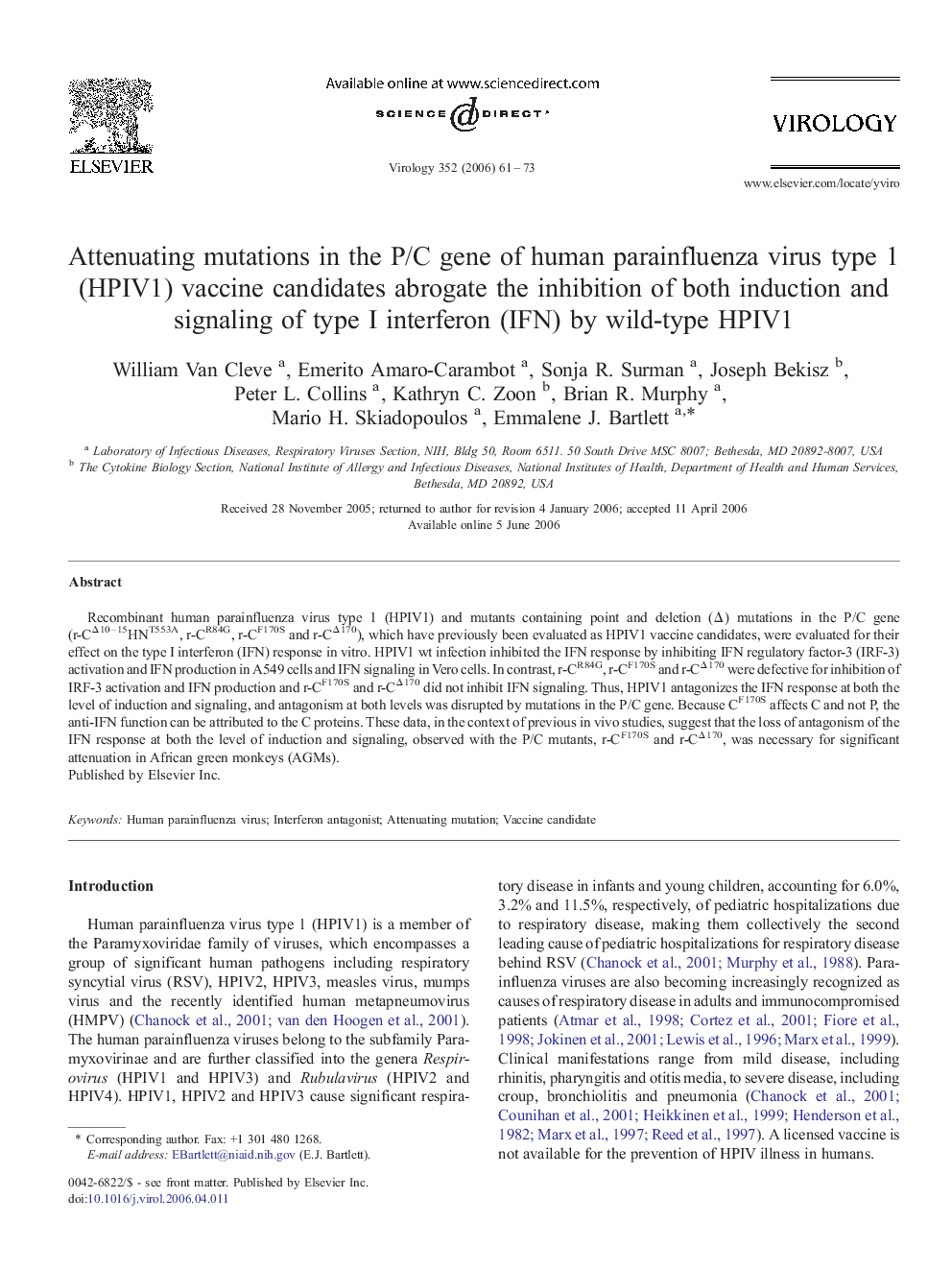| Article ID | Journal | Published Year | Pages | File Type |
|---|---|---|---|---|
| 3427225 | Virology | 2006 | 13 Pages |
Recombinant human parainfluenza virus type 1 (HPIV1) and mutants containing point and deletion (Δ) mutations in the P/C gene (r-CΔ10–15HNT553A, r-CR84G, r-CF170S and r-CΔ170), which have previously been evaluated as HPIV1 vaccine candidates, were evaluated for their effect on the type I interferon (IFN) response in vitro. HPIV1 wt infection inhibited the IFN response by inhibiting IFN regulatory factor-3 (IRF-3) activation and IFN production in A549 cells and IFN signaling in Vero cells. In contrast, r-CR84G, r-CF170S and r-CΔ170 were defective for inhibition of IRF-3 activation and IFN production and r-CF170S and r-CΔ170 did not inhibit IFN signaling. Thus, HPIV1 antagonizes the IFN response at both the level of induction and signaling, and antagonism at both levels was disrupted by mutations in the P/C gene. Because CF170S affects C and not P, the anti-IFN function can be attributed to the C proteins. These data, in the context of previous in vivo studies, suggest that the loss of antagonism of the IFN response at both the level of induction and signaling, observed with the P/C mutants, r-CF170S and r-CΔ170, was necessary for significant attenuation in African green monkeys (AGMs).
